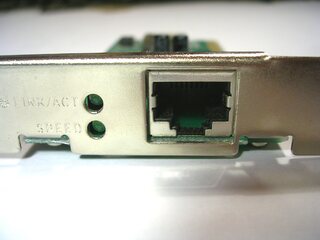So I’ve recently been on a graphing thing, wanting to collect all kind of data from my home network. And collectd seems to be a good candidate for doing that. With a huge number of plugins, it can collect and send just about anything you can think of to a time series database (I’m using InfluxDB for this).
But, there’s a significant hole in my data collection: my pfSense firewall. Well, not anymore!
Unfortunately, with pfSense 2.3 moving to their own package library built on top
of FreeBSD’s pkg system, simply installing pfSense by typing pgk install
collectd5 as worked in 2.2 won’t work anymore. But you can still install things
from the FreeBSD repositories directly.
To start, find the most recent collectd5 release here that is available in FreeBSD. Keep in mind that pfSense 2.3 is based of FreeBSD 10, so if you get an error about wrong architecture, be sure you’re selecting the correct CPU architecture and FreeBSD version.
$ pkg add http://pkg.freebsd.org/freebsd:10:x86:64/latest/All/collectd5-5.5.2.txz
This should directly install collectd. Pretty neat. Setup proceeds as normal
from there. Notably, though, in order to have collectd restart when your
firewall restarts, be sure you edit /etc/rc.conf and add the following line:
collectd_enable=YES
Once it’s installed, you can start it by using:
$ /usr/local/etc/rc.d/collectd start
Collecting CPU Temperature
collectd is primarily written to work on Linux systems. And pfSense itself is derived from FreeBSD, so some things don’t work right. One of the the things I really wanted to closely monitor was the CPU temperature. My pfSense router is in an upstairs closet, so I want to be sure the temperature doesn’t get too high.
Unfortunately, I was not able to get any of the native temperature sensing stuff
in collectd working. But, you have another option. collectd helpfully includes
an exec plugin that lets you execute a script to collect any data you can
think of. And, you can find temperature data from sysctl. Knowing this, you
could write a little script like this:
#!/usr/local/bin/php -q
<?php
$hostname = getenv("COLLECTD_HOSTNAME");
$interval = getenv("COLLECTD_INTERVAL");
$keys = ["dev.cpu.1.temperature", "dev.cpu.0.temperature"];
foreach ($keys as $key) {
$temp = exec("sysctl $key");
if (preg_match('!([0-9\.]+)C$!i', $temp, $matches)) {
$temp = $matches[1];
echo "PUTVAL \"$hostname/cpu_temp/gauge-$key\" interval=$interval N:$temp\n";
}
}
fclose(STDOUT);Then add your script to the /usr/local/etc/collectd.conf file:
LoadPlugin exec
<Plugin exec>
Exec "non-privileged-username" "/path/to/your/script.php"
</Plugin>
You should now have temperature data flowing into collectd.
Collecting DHCP Leases
Similar to above, you can collect the total number of DHCP leases in use using another script:
#!/usr/local/bin/php -q
<?php
$hostname = getenv("COLLECTD_HOSTNAME");
$interval = getenv("COLLECTD_INTERVAL");
$content = file_get_contents("/var/dhcpd/var/db/dhcpd.leases");
$leases = [];
$lease_count = 0;
if (preg_match_all("/lease (?<ip>[\d\.]+) \{\s+starts \d (?<starts>[\d\/]+\s[\d\:]+);\s+ends \d (?<ends>[\d\/]+\s[\d\:]+);/is", $content, $matches)) {
foreach($matches["ip"] as $key => $ip) {
$end_date = strtotime($matches["ends"][$key]);
if ($end_date > time()) {
$leases[$ip] = [$ip, $matches["starts"][$key], $matches["ends"][$key]];
}
}
$lease_count = count($leases);
}
echo "PUTVAL \"$hostname/dhcp/gauge-dhcp_leases\" interval=$interval N:$lease_count\n";
fclose(STDOUT);And add it to collectd.conf:
LoadPlugin exec
<Plugin exec>
Exec "non-privileged-username" "/path/to/your/temperature.php"
Exec "non-privileged-username" "/path/to/your/dhcp.php"
</Plugin>
Collecting OpenVPN Users
The native OpenVPN plugin included with collectd works with pfSense, but you’ll need to add a small line to your OpenVPN config. In the pfSense web GUI, go to VPN -> OpenVPN. Select your OpenVPN server and click Edit (the little pencil). Scroll down to Custom Options at the bottom and add the following line:
status /var/log/openvpn-status.log;
Restart OpenVPN. Now, go to your /usr/local/etc/collectd.conf file and add the
following lines
LoadPlugin openvpn
<Plugin openvpn>
StatusFile "/var/log/openvpn-status.log"
ImprovedNamingSchema false
CollectCompression true
CollectIndividualUsers true
CollectUserCount true
</Plugin>
And now you have OpenVPN user data going into collectd as well.
So that should give you a high-level overview of how to get collectd up and running and collecting data from pfSense. I’m feeding mine into InfluxDB, which I use Grafana on top of to create dashboards.
Now go forth and track all the things! :)

